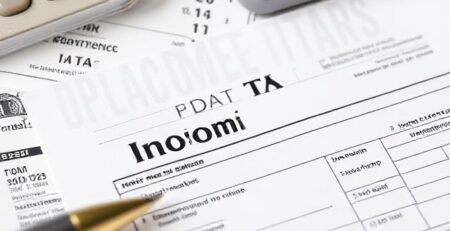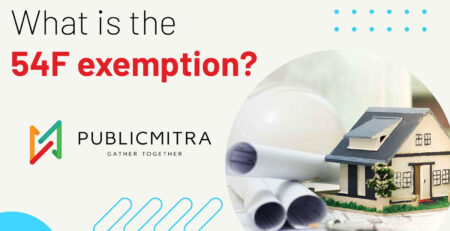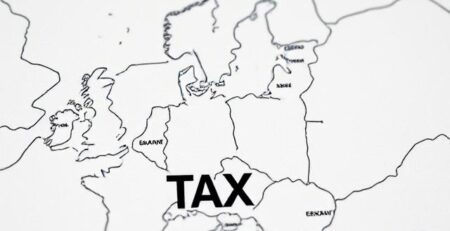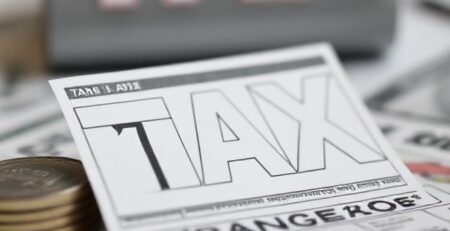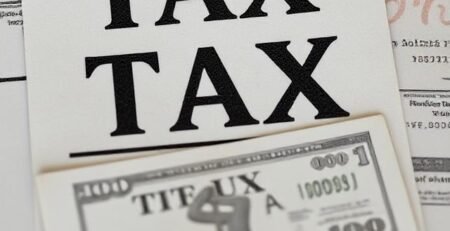Section 87A Rebate from Special Rate Incomes in New Tax Regime: A Comprehensive Analysis for FY 2023-24 & FY 2024-25
Introduction: Understanding the Section 87A Rebate Controversy
The Section 87A rebate from special rate incomes in the new tax regime has emerged as one of the most contentious issues for taxpayers in FY 2023-24 and FY 2024-25. This comprehensive analysis explores the complex landscape where legal provisions clash with administrative implementation, creating confusion and financial burden for eligible taxpayers.
The Income Tax Act clearly allows the rebate, yet systematic disallowances by the Central Processing Center (CPC) during 143(1) intimations have forced thousands of taxpayers into the appeals process. This article provides a detailed roadmap for understanding, claiming, and successfully appealing Section 87A rebate cases involving special rate incomes.
Section 87A Rebate: Legal Framework and Provisions
What is Section 87A Rebate?
Section 87A of the Income Tax Act, 1961, provides a rebate to resident individuals to reduce their tax liability. This provision acts as a relief mechanism for taxpayers with lower income levels, effectively making certain income brackets tax-free.
For FY 2023-24 (Assessment Year 2024-25), the rebate structure under the new tax regime allows:
- Maximum rebate of Rs. 25,000
- Available for taxable income up to Rs. 7 lakhs
- Applicable to resident individuals only
- 100% tax liability can be covered up to the rebate limit
Enhanced Rebate Limits for FY 2024-25
The new tax regime rebate limits have been significantly enhanced for FY 2024-25 (Assessment Year 2025-26):
- Maximum rebate increased to Rs. 25,000 (continuing from previous year)
- Income threshold remains at Rs. 7 lakhs for current fiscal
- Future enhancement: From FY 2025-26, rebate limit will increase to Rs. 60,000 with income threshold at Rs. 12 lakhs
Special Rate Incomes and Section 87A Eligibility
Special rate incomes that commonly create rebate controversies include:
- Short-term capital gains under Section 111A (15% tax rate)
- Long-term capital gains under Section 112A (10% tax rate)
- Dividend income under Section 115BBDA
- Interest income from certain bonds and securities
- Winnings from lottery, crossword puzzles, races, etc.
The legal position remains clear: Section 87A rebate is available on total tax liability, including tax on special rate incomes, provided the taxpayer meets eligibility criteria.
The Administrative Challenge: System vs. Legal Provisions
Income Tax Utility Software Issues
The primary source of confusion stems from the Income Tax Department’s utility software behavior:
- Automatic Disallowance: The software automatically disallows Section 87A rebate when special rate incomes are present
- Manual Override Required: Taxpayers must manually enter the rebate amount in the ITR
- JSON File Generation: The utility generates files that may not reflect manually entered rebate claims
- Processing Discrepancies: CPC processing often ignores manually entered rebate amounts
CPC 143(1) Intimation Patterns
The Central Processing Center has consistently followed a pattern of disallowing Section 87A rebate claims involving special rate incomes:
- Systematic Rejection: Nearly all cases with special rate incomes face automatic disallowance
- Demand Creation: Taxpayers receive demand notices for taxes that should be covered by rebate
- Limited Explanation: Intimations often lack detailed reasoning for disallowance
- Uniform Application: The disallowance appears to be a systematic policy rather than case-specific decisions
Practical Challenges Faced by Taxpayers
Filing Process Complications
Taxpayers encountering Section 87A rebate issues with special rate incomes face multiple challenges:
- Software Limitations
- Utility automatically calculates rebate as zero when special rate incomes exist
- Manual entry fields may not be properly transmitted to ITR-V
- JSON validation errors when rebate is manually claimed
- Inconsistent behavior across different versions of tax software
- Documentation Requirements
- Need for detailed computation worksheets
- Maintenance of supporting documents for rebate claims
- Preparation for potential scrutiny or appeals
- Record-keeping for correspondence with tax authorities
- Timeline Pressures
- ITR filing deadlines creating pressure for quick submissions
- Limited time for rectification requests
- Appeals process deadlines adding complexity
- Rectification utility updates causing further delays
Financial Impact on Taxpayers
The systematic disallowance of legitimate rebate claims creates significant financial hardship:
- Immediate Tax Demand: Taxpayers face demands for taxes they shouldn’t legally owe
- Interest Implications: Delays in resolution can trigger interest charges
- Compliance Costs: Additional expenses for professional assistance and appeals
- Cash Flow Issues: Unexpected tax demands affecting personal financial planning
Legal Position and Judicial Precedents
Income Tax Act Provisions
The legal framework clearly supports rebate claims on special rate incomes:
- Section 87A Language: No exclusion mentioned for special rate incomes
- Legislative Intent: Provision designed to provide relief to lower-income taxpayers
- Computational Method: Rebate calculated on total tax liability after all computations
- Equality Principle: No distinction between different types of income for rebate purposes
Recent Appellate Decisions
Several Commissioner of Income Tax (Appeals) decisions have established favorable precedents:
- CIT(A) Directions
- Multiple cases where CIT(A) has directed Assessing Officers to allow Section 87A rebate
- Recognition that CPC processing errors don’t override legal provisions
- Emphasis on taxpayer rights under the Income Tax Act
- Consistent pattern of appeals being allowed
- Key Legal Principles Established
- Rebate eligibility based on total income, not income source
- Administrative convenience cannot override statutory rights
- CPC limitations don’t restrict taxpayer entitlements
- Manual rebate claims are valid when supported by law
ITAT Rulings and Higher Judiciary
Income Tax Appellate Tribunal (ITAT) has consistently ruled in favor of taxpayers:
- Correctable Omissions: ITAT recognizes that rebate claims can be corrected through revised returns
- CPC Authority Limits: Central Processing Center cannot deny legally valid rebate claims
- Section 139(5) Rights: Taxpayers can file revised returns to claim missed rebates
- Systematic Resolution: Courts acknowledge the systematic nature of the problem
Step-by-Step Resolution Strategy
Immediate Actions for Current Taxpayers
- ITR Filing Strategy
- File return with manual rebate entry despite software limitations
- Maintain detailed computation worksheets
- Document all rebate calculations clearly
- Submit return within specified deadlines
- Post-Filing Monitoring
- Track ITR processing status regularly
- Review 143(1) intimations carefully
- Respond promptly to any demands or notices
- Maintain communication records with tax department
Rectification Request Process
When CPC disallows the rebate through 143(1) intimation:
- Immediate Response Requirements
- File rectification request within 30 days of intimation
- Use updated utility software for JSON generation
- Include detailed explanations and legal justifications
- Attach relevant court decisions and precedents
- Documentation for Rectification
- Copy of original ITR with rebate claim
- Computation worksheets showing rebate calculation
- Legal provisions supporting the claim
- Evidence of compliance with all eligibility criteria
Appeals Process Navigation
If rectification fails, the appeals route offers strong prospects:
- CIT(A) Appeal Preparation
- Comprehensive written submissions citing legal provisions
- Reference to favorable appellate decisions
- Detailed computation showing correct tax liability
- Emphasis on systemic nature of the problem
- Supporting Documentation
- Complete set of filed returns and computations
- CPC intimation and rectification correspondence
- Legal precedents from similar cases
- Professional opinions supporting the position
Technical Solutions and Workarounds
Software Utility Management
Effective use of tax filing software requires specific strategies:
- Utility Version Management
- Always use the latest version of ITR utility
- Verify rebate calculation fields before submission
- Generate backup copies of all data entries
- Test JSON file generation before final submission
- Manual Entry Techniques
- Override automatic rebate calculations when necessary
- Document all manual entries with supporting calculations
- Verify that manual entries appear in generated ITR-V
- Maintain separate records of intended vs. generated returns
Professional Assistance Strategies
Given the complexity of issues, professional guidance becomes crucial:
- CA/Tax Professional Engagement
- Select professionals experienced with Section 87A issues
- Ensure they understand new tax regime implications
- Verify their familiarity with appeals process
- Establish clear communication protocols
- Documentation Standards
- Maintain professional-grade computation worksheets
- Prepare comprehensive legal briefs for appeals
- Organize supporting documents systematically
- Create timeline tracking for all deadlines
Future Implications and Recommendations
System Improvements Needed
The current situation highlights several areas requiring immediate attention:
- Software Enhancement
- Utility software must correctly handle rebate calculations
- Manual override capabilities need improvement
- JSON generation should reflect all user inputs accurately
- Integration between filing and processing systems requires fixing
- Administrative Process Reform
- CPC processing logic needs updating to reflect legal provisions
- Training for processing staff on rebate eligibility
- Quality control mechanisms for systematic errors
- Faster rectification and appeals processes
Taxpayer Protection Measures
Several measures could protect taxpayers from similar issues:
- Proactive Communication
- Clear guidelines on rebate claim procedures
- Regular updates on system issues and resolutions
- Simplified rectification processes
- Transparent appeals timelines
- Systemic Solutions
- Automated processing improvements
- Regular software testing and validation
- Feedback mechanisms for identifying issues
- Coordination between different department divisions
Preventive Measures for Taxpayers
Pre-Filing Preparation
Taxpayers can take several steps to minimize issues:
- Income Analysis
- Identify all sources of special rate income
- Calculate rebate eligibility accurately
- Prepare supporting documentation in advance
- Understand applicable legal provisions
- Professional Consultation
- Engage qualified tax professionals early
- Review rebate claims before filing
- Prepare for potential challenges
- Establish appeal strategy if needed
Post-Filing Vigilance
After filing returns, taxpayers should:
- Monitor Processing
- Track return processing status regularly
- Review intimations immediately upon receipt
- Respond to discrepancies promptly
- Maintain detailed correspondence records
- Prepare for Appeals
- Keep comprehensive documentation ready
- Understand appeals timelines and requirements
- Research relevant legal precedents
- Consider professional representation
Conclusion: Navigating the Section 87A Rebate Landscape
The Section 87A rebate from special rate incomes in the new tax regime represents a clear case where legal provisions and administrative implementation are misaligned. While the Income Tax Act unambiguously allows the rebate, systematic disallowances by CPC create unnecessary hardship for eligible taxpayers.
The path forward requires a two-pronged approach: immediate tactical responses by taxpayers to protect their rights, and longer-term systemic reforms by the tax administration. Taxpayers must be prepared to navigate the appeals process, armed with strong legal positions and comprehensive documentation.
The consistent success rate in appeals demonstrates that the legal position favoring taxpayers is sound. However, the burden of pursuing these appeals represents an administrative failure that requires urgent attention from policymakers.
For FY 2024-25 and beyond, taxpayers should adopt a proactive stance: file returns with proper rebate claims, monitor processing carefully, and be prepared to appeal when necessary. The legal framework supports their position, and appellate authorities have consistently provided relief.
The ultimate resolution lies in systemic reforms that align administrative processes with legal provisions, ensuring that eligible taxpayers can claim their rightful rebates without unnecessary litigation. Until such reforms are implemented, taxpayers must remain vigilant and assertive in protecting their statutory rights under Section 87A of the Income Tax Act.
This ongoing issue serves as a reminder of the importance of understanding both legal rights and practical challenges in tax compliance. With proper preparation, documentation, and professional guidance when necessary, taxpayers can successfully navigate these challenges and secure their entitled rebates under the new tax regime.
The evolving landscape of tax administration requires taxpayers to be informed, prepared, and persistent in claiming their legitimate benefits. The Section 87A rebate controversy, while challenging, ultimately reinforces the principle that statutory rights cannot be denied through administrative convenience or systemic errors.







